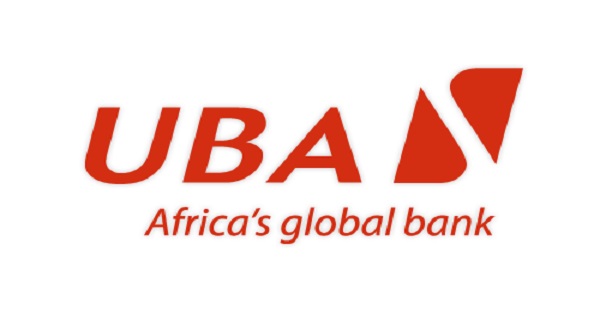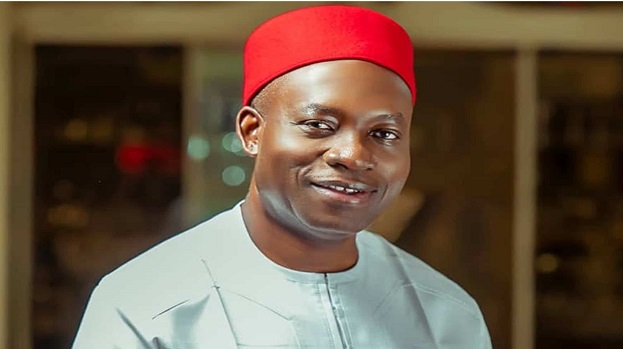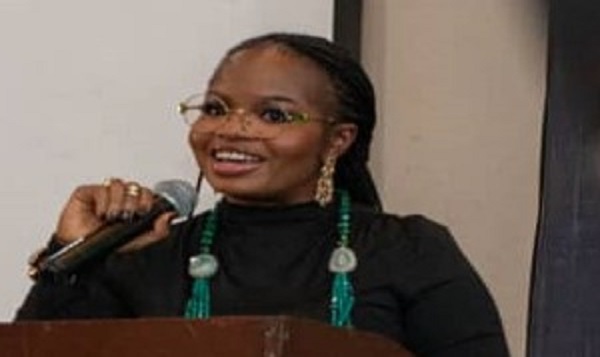News
12 Finalists Selected in UBA Foundation National Essay Competition 2018 a

UBA Foundation, the corporate social responsibility arm of the United Bank for Africa (UBA) Plc, has announced the twelve finalists for the 2018 edition of its annual National Essay Competition.
The 12 finalists will sit for the second round of the competition, where three winners will emerge after undergoing supervised essay writing on a different topic from the original entry, on Saturday November 25, 2018 at the Bank’s headquarters in Lagos
The 12 finalists were selected after a very tedious grading process undertaken by a distinguished panel of judges made up of top professors from reputable higher institutions from the four geographical zones in Nigeria. The students were graded using some parameters including grammar, articulation, arrangement, handwriting, punctuation and strength of argument.
Interestingly, this year’s edition recorded the highest participation, with more entries coming in from various secondary schools across the country – even after entries had been closed. In all, over 6,000 entries were received for this year’s edition.
The names of the finalists in no particular order are: Ugwuagbo Chinweizu of Lydia of Shalom Academy Nsukka; Israel-Olusegun Daniel of The Fountain Comprehensive Secondary School, Ogun State; Alo Praise Ayomiposi of Lagos African Church Grammar School, Lagos State; Adeyemi Abdul-Lateef of Pivic Colege Iba, Lagos State, Adetola Ibukunoluwapo from Vivian Fowler Memorial College, Lagos; Odjegba Omesiri Divine of International High School, Delta State; Hezekiah Tiffany Uruaku of Faith Academy Rivers State.
Others are Ozemoka Halimat Emesomi, University Preparatory Secondary School, Edo State; Idogbo Sharon O. of Holy Child College, Lagos; Adiankpo Ini- Iso Christopher of Nigerian Christian Institute, Uyo and Komolafe Justice Babatunde of Kingsfield College, Lagos State.
The essay competition, which targets senior secondary school students is organized annually, as part of UBA Foundation’s Education initiative aimed at promoting the reading culture and encouraging healthy and intellectual competition amongst secondary school students in Nigeria and across Africa.
This year, the topic is “What is the biggest environmental issue you think your generation will face? How can it be avoided and how can it be solved?”
Mrs. Bola Atta, Chief Executive Officer of UBA Foundation, who announced the new prizes explained that the first prize for the UBA National Essay Competition is a N2 million educational grant for the winner to study in any African university of his or her choice, a 100% increase from N1m which was awarded last year, while the second and third prizes have increased to N1.5 million and N1m educational grants respectively, up from N750,000 and N500,000 previously obtained.
Atta also explained that the choice of topic for this year’s competition is one that helps promote creative and analytical thinking in students and encourages them to be problem solvers.
UBA Foundation’s National Essay Competition has been taken to other African countries including Ghana and Senegal as well as Mozambique and Kenya. The initiative will spread to more African countries in 2019.
UBA is one of Africa’s leading banks with operations in 20 African countries. It also has presence in the global financial centres; London, New York and Paris. UBA provides banking services to more than 15 million customers globally, through diverse channels.
News
Anambra Cuts Monday Pay to Kill Sit-at-Home

Anambra State will implement pro-rata salary payments for civil servants starting February 2026, targeting chronic Monday absenteeism from the long-running sit-at-home order, Information Commissioner Dr. Law Mefor announced Saturday.

Soludo
Speaking at an Awka briefing after the Executive Council’s end-of-tenure retreat, Mefor said improved security and transport have eliminated excuses for the four-year disruption, which cost the state trillions in lost revenue. “Workers enjoyed full pay despite staying away; now, no work means no pay for that day, calculated over 24 working days,” he stated.
Compliance measures include mandatory Monday clock-in forms, with markets urged to reopen fully amid bolstered security. This builds on a January 22 executive order docking 20% pay from teachers absent on Mondays.
Mefor warned that lost Mondays cripple revenue collection and productivity, rejecting alternatives like Saturday shifts as capitulation to agitators.
News
Stakeholders Demand Stronger Governance and Infrastructure to Drive Tech Adoption @ Lagos AI Summit

As AI adoption accelerates across Nigeria, leaders at the “AI in Action Now” conference 2026 have called for a balance between rapid innovation and strict regulatory governance. The event, held at the Lagos Oriental Hotel, highlighted both the doggedness of Nigerian builders and the risks of unregulated data usage.

Dotun Adeoye, Co-Founder of AI Nigeria, raised alarms over “Shadow AI”, a trend where employees upload sensitive official documents to public AI platforms. He praised the Nigerian Data Protection Commission (NDPC) for its recent aggressive stance, including multi-million-dollar fines against major banks and social media brands.
“Innovation without governance is dangerous. The regulator now has the job of educating players. We are working in partnership with them to ensure players don’t just get fined, but actually understand how to protect data locally rather than storing it abroad, ” Adeoye noted.
Addressing issues of lack of infrastructure to carry AI adoption, Conference Convener Debola Ibiyode admitted that while Nigeria lacks the traditional foundation for AI adoption, the tech community cannot afford to wait.

“The simple answer is we don’t have the infrastructure, but Nigeria has never really had infrastructure to drive anything, and we still thrive, ” Iboyode said, encouraging students and builders to look beyond current limitations. “Once we start to build based on what we have now, it will encourage those who need to provide the infrastructure to do their part. The world will not wait for us,” she insisted.
To bridge this gap, she highlighted the AI Foundry Africa, an incubator designed to mentor ideas into market-ready products.
Meanwhile, speaking to journalists on the sidelines, Biodun Ogunleye, the Lagos State Commissioner of Energy and Mineral Resources, echoed the sentiment that the government’s role is to facilitate the right environment through partnership. He emphasized that data generated from interactions with the government must have long-term value.
“We must ensure that in all facets from production to interaction with government, the tools required to ensure data has value are appreciated,” Ogunleye stated.
He concluded that through private-sector collaboration, the government can focus on its primary functions while leveraging AI to ensure the nation aspires for the future.
News
35 Million Nigerians Face Acute Hunger in 2026, UN Warns

About 35 million Nigerians face acute hunger risks in 2026, including three million children battling severe malnutrition, the United Nations has warned, attributing the crisis to collapsing global aid budgets and escalating violence in the northeast.

UN Resident and Humanitarian Coordinator Mohamed Malick Fall disclosed this on Thursday during the launch of the 2026 humanitarian plan in Abuja, noting that the traditional foreign-led aid model proves unsustainable amid Nigeria’s escalating needs.
He highlighted dire conditions in Borno, Adamawa and Yobe states, where over 4,000 people perished in the first eight months of 2025 from surging suicide bombings and attacks—equalling the entire previous year’s toll.
The UN now targets $516 million to deliver lifesaving aid to 2.5 million people this year, a sharp drop from 3.6 million in 2025 and half of prior levels, forcing prioritisation of only the most critical interventions.
Fall stressed, “These are not statistics. These numbers represent lives, futures and Nigerians,” as shortfalls last year compelled the World Food Programme to halt support for over 300,000 children after resources dried up in December.
Yet, Fall acknowledged Nigeria’s increasing national ownership, including local funding for lean-season food assistance and proactive flood early-warning systems, signalling a shift toward self-reliant crisis response.

 E-Financial3 days ago
E-Financial3 days agoZenith Bank Gets Regulatory Approval for Full Takeover of Paramount Bank

 E-Business3 days ago
E-Business3 days agoFirm Detected a Fivefold Surge in QR Code Phishing Attacks in the Second Half of 2025

 Telecom3 days ago
Telecom3 days agoNew Investment Fund Targets Acceleration of Emerging Technology in Nigeria

 News3 days ago
News3 days agoNITDA Commits to Digital Inclusion for Persons with Disabilities

 General News2 days ago
General News2 days agoPalmPay User Shares Experience on Fintech Apps to Trust in Nigeria

 News2 days ago
News2 days agoStakeholders Demand Stronger Governance and Infrastructure to Drive Tech Adoption @ Lagos AI Summit

 General News2 days ago
General News2 days agoNigerians Target Self-Improvement, Business Startups in 2026 Google Data

 General News2 days ago
General News2 days agoHow Inside Jobs and Policy Shocks Trigger Nigeria’s Rising Loan Crisis













